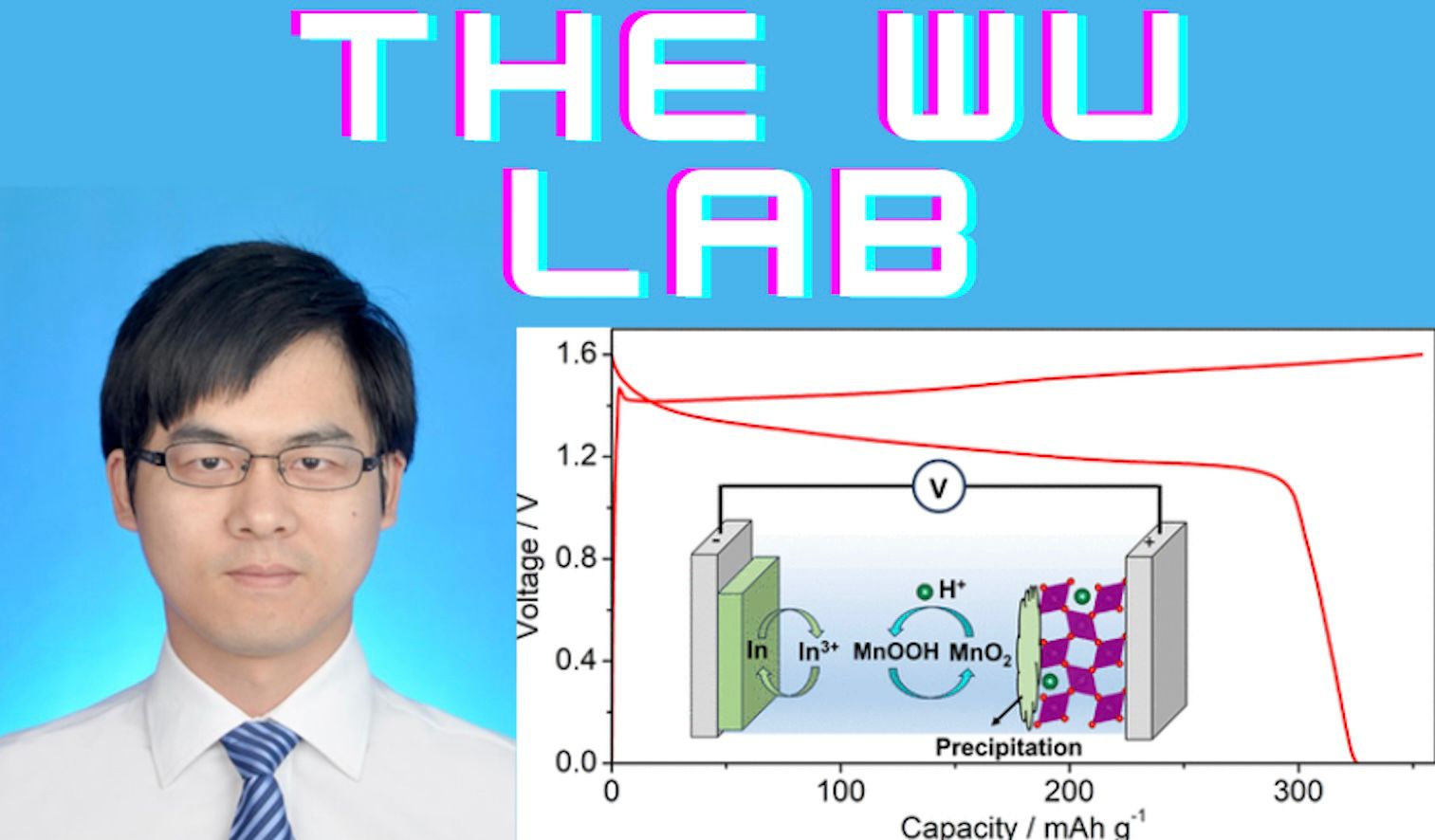UPR researchers invented a new aqueous rechargeable indium metal battery and published their work in JACS!

Author: Songyang Chang, Jose Fernando Florez Gomez, Swati Katiyar, Gerardo Morell, and Xianyong Wu
Event/Award/Fellowship Occurrence: Research findings published in the Journal of the American Chemical Society
When and where the event/award/fellowship occurs: Nov 7th, 2023; University of Puerto Rico, Río Piedras
Energy storage plays a crucial role in our daily lives. State-of-the-art lithium-ion batteries are widely used in various applications, such as cellphones, laptops, and electric vehicles. However, lithium batteries use volatile and flammable electrolytes, leading to safety issues (fires or explosions). Therefore, the battery field is actively investigating alternative batteries with higher safety.
Aqueous batteries use nonflammable water-based electrolytes, thus showing great promise as high-safety batteries. Currently, most studies are focused on the Zn metal batteries; however, zinc is prone to form a sharp and needle-like morphology (termed as dendrites), leading to the battery short-circuit issue. Therefore, most Zn batteries have poor rechargeability and are used as primary batteries.
At the University of Puerto Rico at Río Piedras, Professor Xianyong Wu and his research team developed an intriguing indium metal as an alternative to the conventional Zn metal. They found that this indium metal could support 3-electron transfer reaction, which gives rise to a high capacity of ~700 mAh g-1, close to that of Zn. Furthermore, this indium metal showcases an exceedingly low polarization of 1 mV and a high Coulombic efficiency of 99.3-99.8%, suggesting fast reaction kinetics and reversibility. Besides, this indium metal resists the dendrite growth, which is advantageous over the Zn metal. When combined with a cheap and non-toxic manganese dioxide cathode, the battery exhibits a good voltage, a high energy density, and a long cycling life. This work was published in the top journal of JACS in 2023.
This pioneering research not only places the University of Puerto Rico at Río Piedras’ Chemistry Department at the forefront of energy storage innovation but also underscores our commitment to the green energy transition. The exploration of trivalent indium metal anodes opens new avenues in battery chemistry, promising versatile applications and supporting our vision of a sustainable energy future. This work exemplifies our department’s dedication to pushing the boundaries of scientific research and contributing to the global energy landscape.
Link to the Original Story: Trivalent Indium Metal as a High-Capacity, High-Efficiency, Low-Polarization, and Long-Cycling Anode for Aqueous Batteries. (https://doi.org/10.1021/jacs.3c08677)
